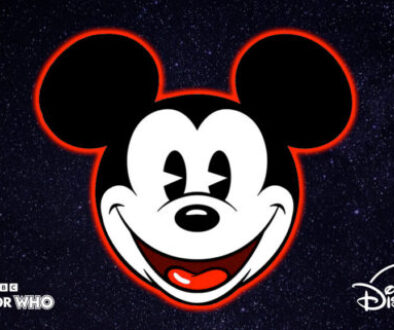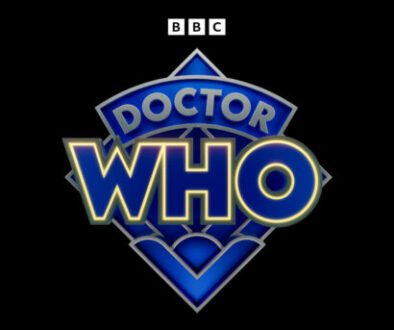Doctor Who: “Lux” Starts Strong, Then Falls Flat – 2nd Opinion, Take 2

J.C. reviews the second episode of Series 15.
Of all the episodes teased in the first Series 15 trailer, this was the one that intrigued me most. The premise of a malevolent cartoon come to life inside a haunted cinema sounded like a potential classic. And for the first half, “Lux“ largely lives up to that promise.
Sadly, around the midpoint, the episode morphs into something else entirely.
The fourth wall is smashed. The Doctor and Belinda meet viewers of Doctor Who inside the story, fictional fans rating the episode, complaining about spoilers, even referencing an infamous Twitter hashtag. It feels like RTD could not resist the urge to flip the script and throw in a few jabs at the fandom while he was at it. At times, this feels defensive, as though he’s responding directly to online criticism. Even if it’s not intended to be spiteful, it does feel like the work of a showrunner who’s grown tired of the noise. One of the fans even quips, “We are a bit annoying. I know that.”
Doctor Who has, of course, played with metafiction before, Hartnell’s Christmas toast, Tom Baker’s camera nods, or more recently with Mrs Flood, but it has usually respected the stakes of the world it builds. Here, the story doesn’t just bend the rules of its universe, it points them out, pokes fun at them, then sprints through the screen shouting, “Ta-da!”
That tonal shift flattens the drama. What begins as a promising Doctor Who set up becomes a commentary on itself. Rather than continuing to draw you in, it explains the trick, highlights its own plot holes, and expects applause for doing so. The script acknowledges that the ending is signposted too early. That the villain’s motivations are inconsistent. That the cartoon logic doesn’t quite hold. But it brings to mind a Pitch Meeting moment, where Producer Guy asks if pointing out bad writing somehow makes it better, and Screenwriter Guy shrugs: “God, I hope so.” Winking at your flaws is not the same as fixing them.
Still, there are moments when “Lux“ shines. When it embraces the audacious genre mash-up, the episode sparks with energy. Mr Ring-a-Ding, voiced to perfection by Alan Cumming, is the obvious standout, injecting every scene with personality and flair. The animation is slick, expressive, and beautifully matched to his performance. The reveal that he is part of the Pantheon feels slightly tacked on, and the recurring format of “godlike entity appears and is defeated in 45 minutes” is starting to wear thin, but Cumming keeps the momentum alive.

Ncuti Gatwa gets more to work with. His speech about “forces beyond this universe” and “toppled worlds” are some of his most Doctor-like moments yet. Gawta is always much better when the writing lets him slow down and feel the weight of a moment. That said, the slangy dialogue still grates. Phrases like “do your thang, baby” should not be uttered by a Doctor. Ever. Combined with references like the Scooby-Doo line (“Honey, I’m Velma”), they pull the character out of that timeless, space alien and into something closer to pop culture parody.
New companion Belinda is also improved this week. She’s more engaged, less defensive, and shows stronger chemistry with the Doctor. Their dynamic is warmer and sharper, a solid step up from “The Robot Revolution”, though there’s still room to grow. The story also deserves credit for addressing the racial context of 1952 Miami, not in a heavy-handed way but with just enough weight to matter. Compared to “Rogue“, which ignored its historical setting entirely, it’s a welcome improvement.
The animated sequence, where the Doctor and Belinda become literal cartoons, is fun but lacking in execution. The idea of emotional depth restoring their three-dimensional form is a nice metaphor, but from the moment they enter that world, they’re already halfway out. There’s little tension, no surreal cartoon logic to confront. It’s a quick, stylish detour rather than a fully realised set piece. The chance to explore animation as a narrative obstacle, with Looney Tunes-esque exaggerated physics or looping gags, is left on the table. Perhaps a budgetary restraint, but narratively, it’s a missed opportunity.

Some supporting characters also feel underused. Reginald Pye, the projectionist clinging to memories of his late wife, begins as a poignant figure but is quickly sidelined. Mrs Lowenstein adds weight and dignity in her scenes too, but both are abandoned until the end once the metafictional elements take over. Their emotional potential is sacrificed for high-concept antics.
And then there’s the climax. Lux/Ring-a-Ding feeds on light, is overwhelmed by sunlight, and becomes a being of infinite energy, dissipating into the cosmos. It’s a striking image, sure, but thematically muddled. His motivations remain vague, his powers ill-defined. Is he just a chaotic god? A lost cartoon with nuclear ambitions? A metaphor for storytelling? The script gestures in all directions and lands firmly in none.
“Lux” is bursting with ideas, some glorious, some half-baked, all very RTD. The first half promises a tightly crafted, genre-bending mystery with style and bite. But just as it starts to find its rhythm, the story turns inward, more interested in commenting on itself than delivering on its own setup, ultimately falling flat as a result.
Asides
- Had RTD been watching a bit too much She-Hulk and Deadpool?
- Fifteen people trapped in celluloid? Terrifying! Let’s mention it once and move on.
- The Doctor casually heals himself with leftover bi-generation like it’s paracetamol. A moment that cheapens what was meant to be a rare, mysterious event.
- A living cartoon bursts into the real world, and Logan mutters, “What the flip is that?” An animated god is having a nuclear meltdown above your cinema, maybe act like it!
- Mrs Flood appears once again for her regular cryptic cameo, this time declaring the show has a “limited run.” At the time RTD wrote this script, it was likely just another in-universe nod to the finale, but in 2025, with real-world concerns about Doctor Who’s future circling, it lands with eerie relevance…








